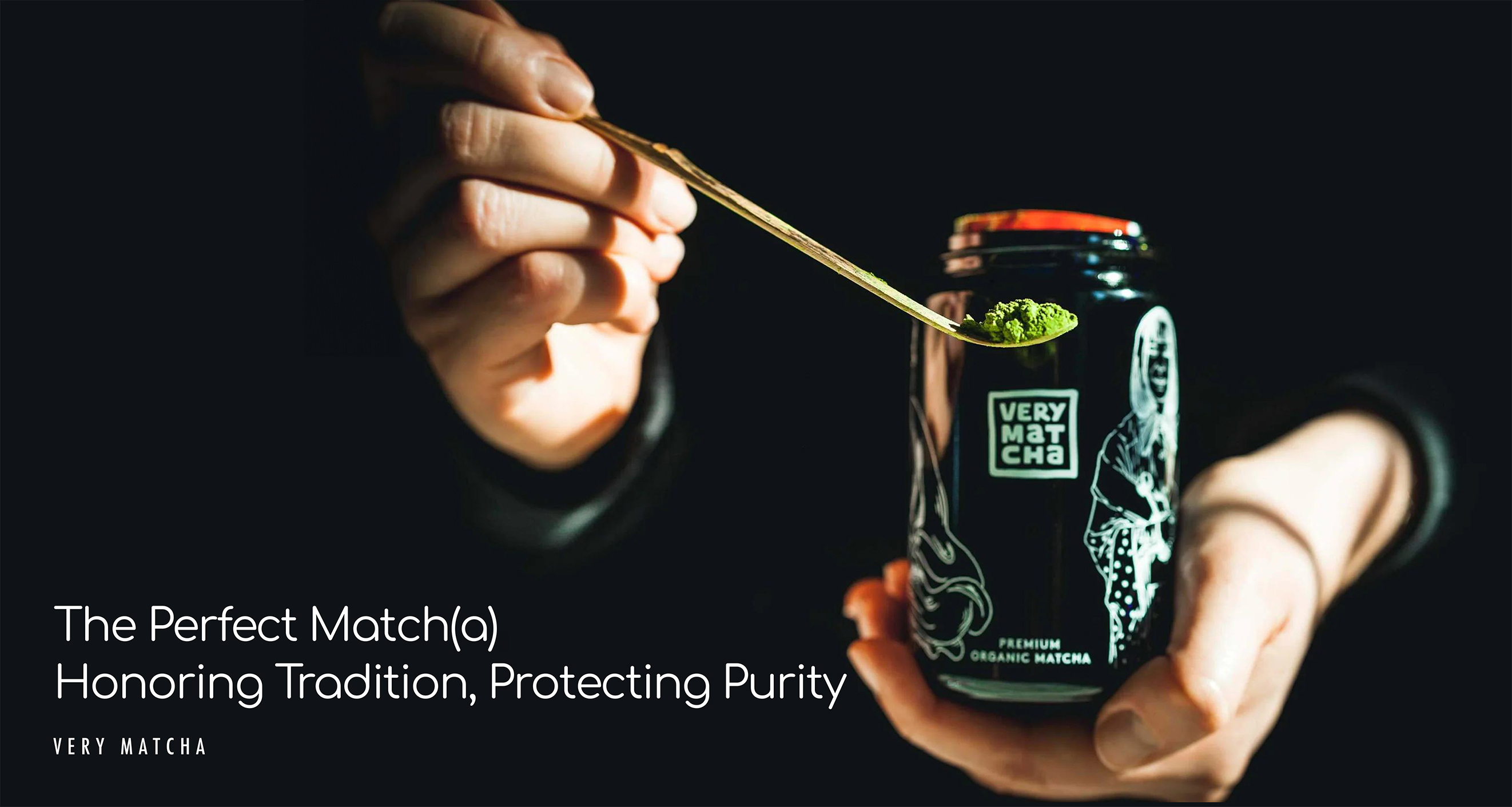
From a breakfast-table revelation to a brand advocating premium matcha, Very Matcha is on a mission to honor centuries-old Japanese tea traditions while setting new standards for purity, sustainability, and excellence.
A Commitment to Quality
The journey of Very Matcha began in 2016 when founders Anna Chechetka and Jochen Meyer discovered their shared love for matcha. Their kitchen table in Germany soon overflowed with metal matcha tins from various brands, exposing a gap in the market. Much of the available matcha was mediocre in quality, sourced from the same wholesalers, and wrapped in excessive packaging with only a different label as a differentiator. Determined to change this, Anna and Jochen launched Very Matcha in 2019 with a commitment to authenticity, sustainability, and superior quality.
"Authentic quality is something you can only find if you meet the farmers,
see how they grow and harvest, and understand the craftsmanship behind
the product. Only then you understand the soul of the product.
Jochen Meyer
Co-Founder Very Matcha
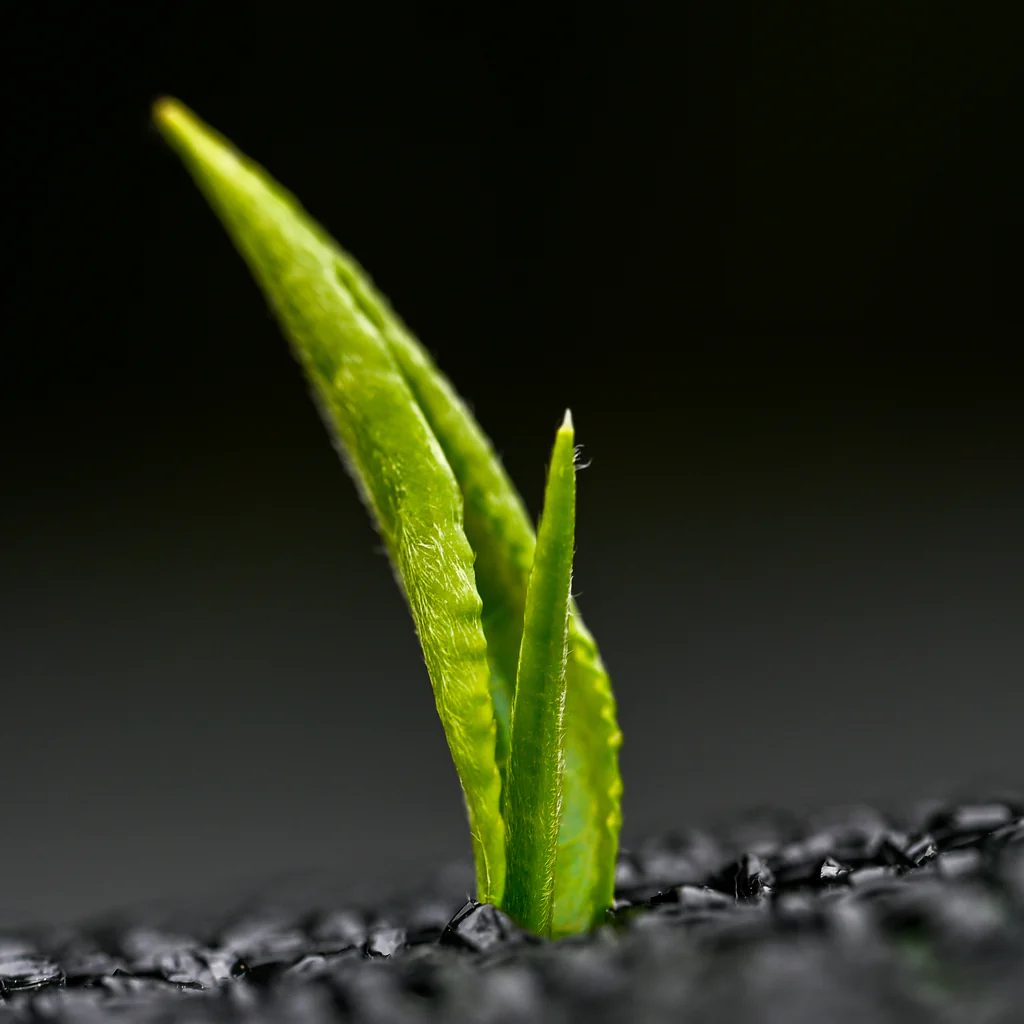
Exceptional Quality is Found at the Source
Rather than relying on generic suppliers, Very Matcha partners directly with specialized tea farmers in Kagoshima, Japan. Known for its untouched nature and rich volcanic soil, this region is at the forefront of organic tea cultivation. It was one of the first to invest in organic farming and return to traditional growing methods that have been used for centuries. Each batch of matcha is carefully selected based on taste, purity, and traditional processing methods, ensuring it meets the highest standards of excellence.
The brand’s guiding principles mirror the philosophy of the traditional Japanese tea ceremony: Harmony (Wa), Respect (Kei), Purity (Sei), and Tranquility (Jaku). Every step, from shading the tea plants to the delicate hand-harvesting process, preserves the craftsmanship that has defined matcha for generations.
Packaging With Purpose
While most matcha brands rely on metal tins, Very Matcha took a different approach. Traditional tins add unnecessary weight and bulk, making transportation less efficient. “A single can containing only 30g of matcha powder weighs over 40g, increasing transport weight significantly,” explains Jochen. To reduce environmental impact, Very Matcha switched to ultra-light, tightly packed aroma bags, cutting 95% of unnecessary packaging waste and significantly lowering fuel consumption during transportation. But for long-term home storage, they needed a sustainable, stylish, and protective solution.
With a background in pharmacy, Jochen was already familiar with the protective properties of Miron glass, due to its traditional use for pharmaceutical products. From a scientific perspective, matcha contains highly sensitive compounds, such as catechins (EGCG), chlorophyll, and L-theanine, which are extremely vulnerable to light, oxygen, and heat. Without proper storage, chlorophyll degrades quickly, causing matcha to lose its vibrant green color. L-theanine, which contributes to matcha’s smooth umami flavor and calming effect, is prone to oxidation.
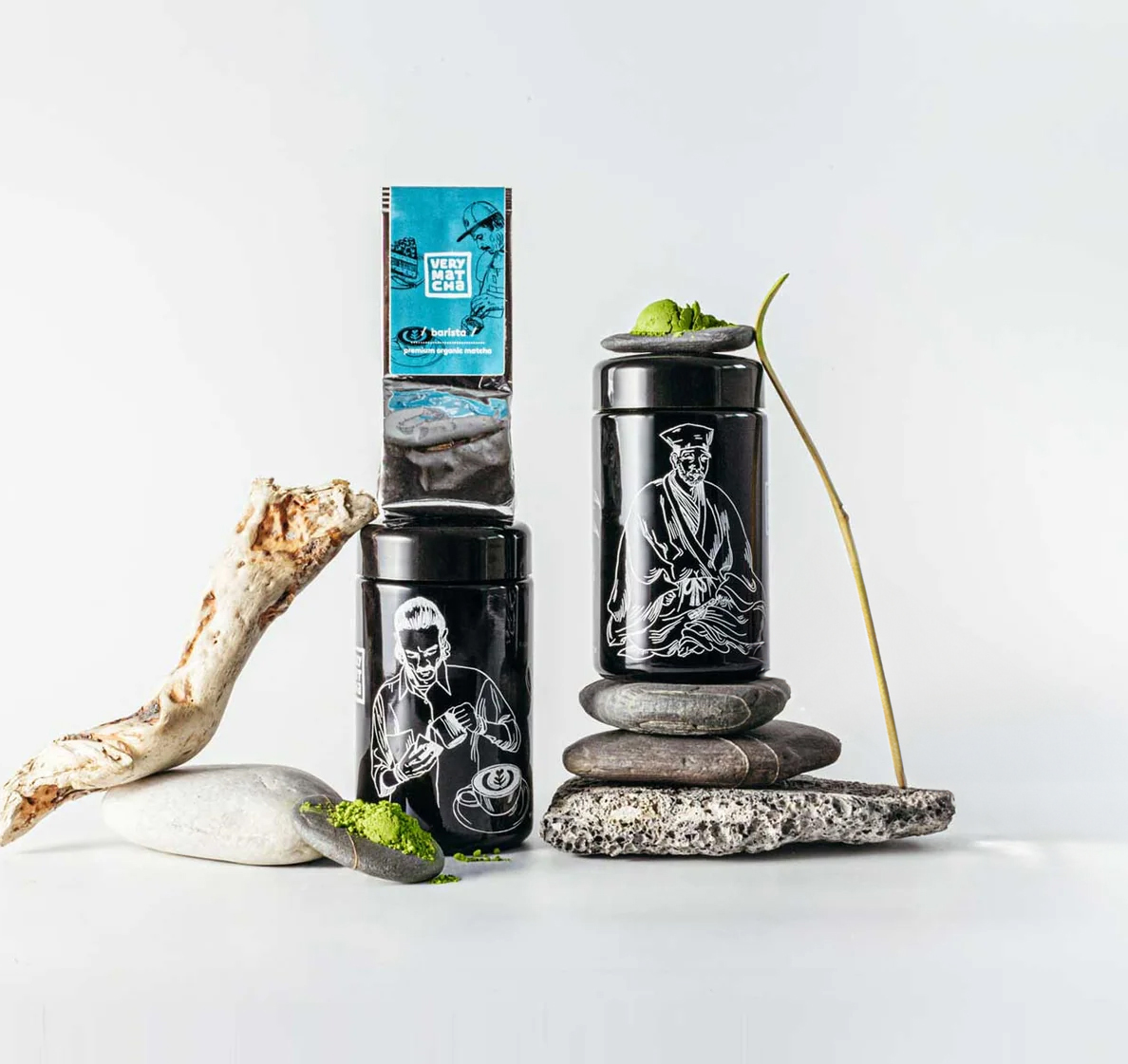
"Especially after opening the refill packs, matcha must be stored carefully. Protecting catechins, L-Theanine, and chlorophyll is essential to maintain its quality and potency. To ensure maximum protection, Miron is the perfect solution for this. We chose Miron’s Saturn 200 ml because it effectively filters out damaging wavelengths, helping to preserve matcha's vibrant color, nutrients, and flavor." – Very Matcha Founders
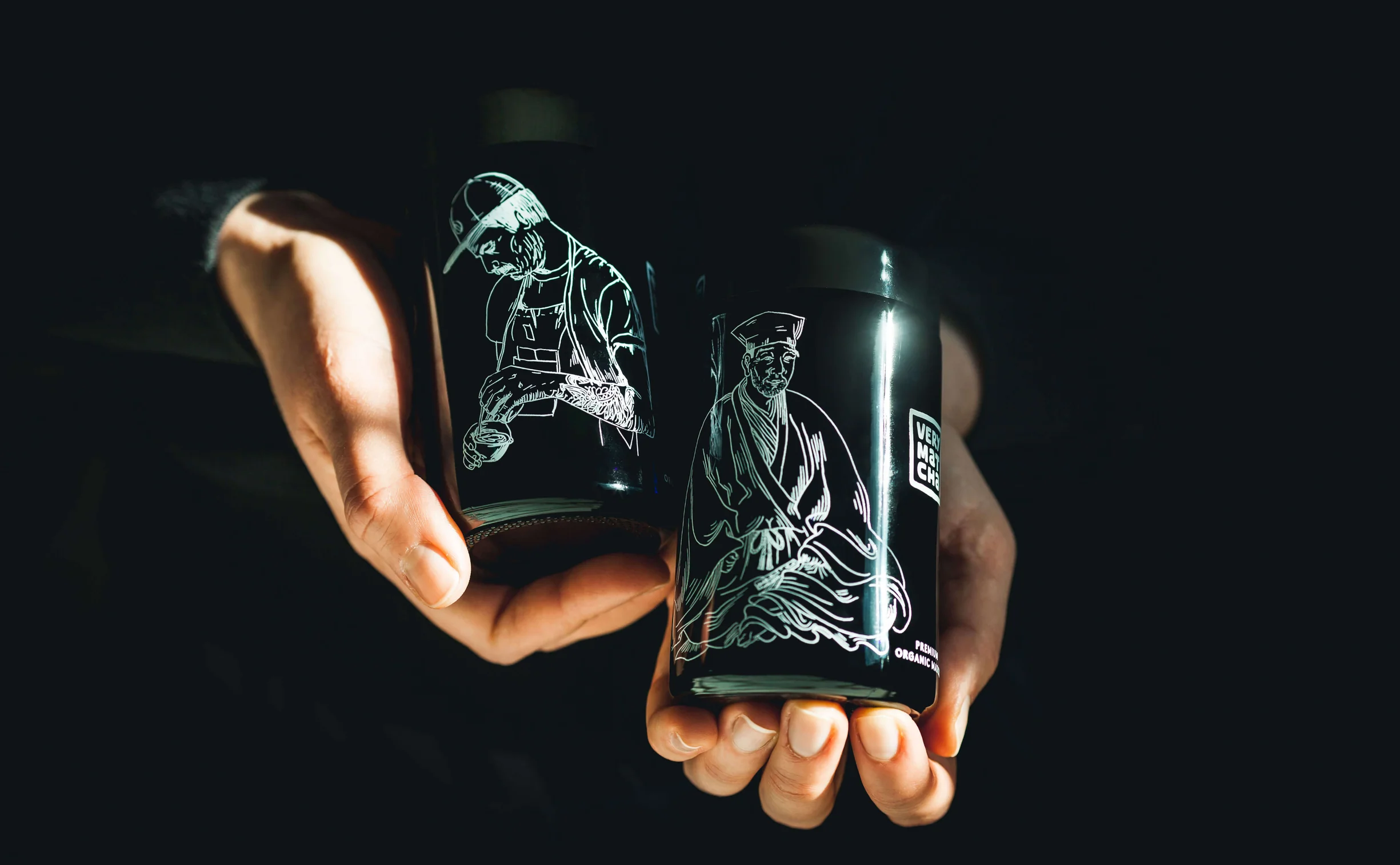
Featured products: Saturn 200 ml with Classic Lid
Understanding Matcha Grades
Very Matcha offers a carefully curated selection of ceremonial and barista-grade matcha. But what is the difference?
Ceremonial matcha
The highest quality matcha, suitable for the traditional Japanese tea ceremony. In many Western countries, it can be difficult to fully grasp how deeply Japanese culture is rooted in rituals and philosophy. Drinking matcha was once an important ritual reserved for the spiritual and political elite. Over centuries, farmers and highly skilled tea masters refined and perfected every aspect of producing.
While “ceremonial matcha” is not a legally protected term, it generally signifies matcha that meets these key criteria:
-
Shading:Tea plants are shaded for two to three weeks before harvest, which enhances the levels of L-theanine and catechins, contributing to matcha’s unique taste and health benefits.
-
First Harvest:Only the youngest, most delicate leaves and buds are picked during the first harvest of the year (typically late April to early May).
-
Processing:The leaves are steamed and processed into tencha, meaning that stems and veins are carefully removed before grinding.
Without these steps, tea may still be labeled as matcha despite not meeting traditional quality standards.
Barista-grade matcha
Crafted specifically for mixing with milk. While ceremonial matcha is delicate and refined, barista matcha has a stronger, more robust flavor, making it ideal for matcha latte. It maintains the essential characteristics of high-quality matcha but also includes leaves from the second harvest, resulting in higher catechin levels and a more pronounced taste.
The Art of Presentation
You may have noticed the artistic take on the packaging. Anna, who is also an experienced artist, brand strategist, and visual designer, personally created the illustrations to help customers easily identify each matcha variety.
Barista Matcha - Features a latte art cup, two baristas, and a cake, highlighting its use for matcha lattes and baking.
Ceremonial Matcha - Reflects heritage and authenticity, showcasing a renowned tea master, traditionally dressed Japanese figures, and tea ceremony accessories, screen printed directly onto the Miron jars.
A Bright Green Future
The matcha market is expected to keep growing. Many cafés already feature matcha, but overall quality remains inconsistent. As consumer awareness increases, demand for authentic, high-grade matcha will continue to rise.
In the past 12 months, Very Matcha has grown by 500%. Looking ahead, the brand aims to expand its café partnerships, ensuring that high-quality matcha gets the same level of appreciation as specialty coffee. Their mission remains the same. Honoring tradition, protecting purity, and making premium matcha more accessible.
More Spotlight Articles
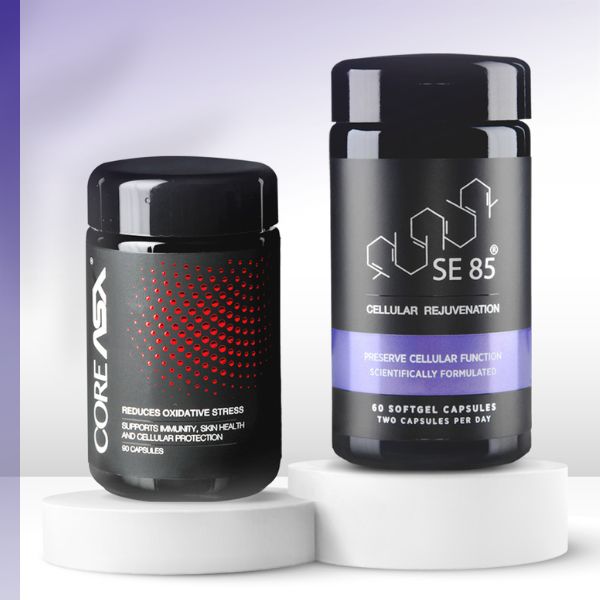
Revolutionary Rejuvenating Nutricosmetis
Hebe Life has created some of the most effective rejuvenating products on the market. By combining high-quality natural ingredients with years of scientific research using top laboratories and scientific institutions, Hebe Life has developed unique products. Greater than the sum …
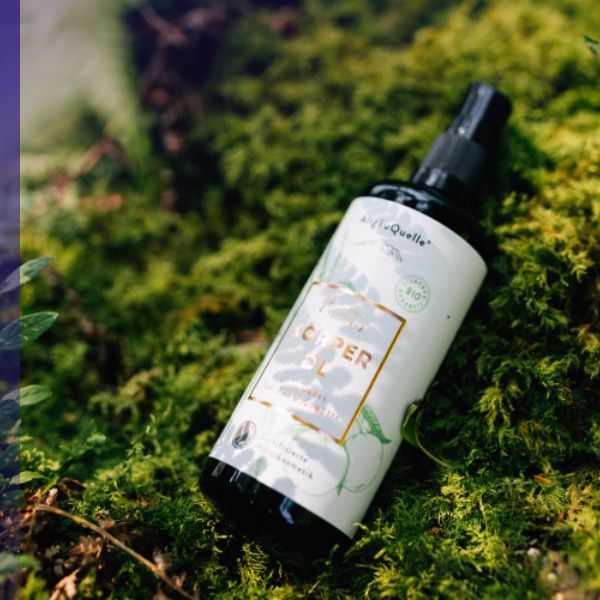
From Sauna Idea to Wellness Revolution
Discover the revolutionary world of AllgäuQuelle, where wellness and sustainability come together in every bottle. What started as a simple sauna epiphany has evolved into a pioneering German brand, setting new standards in the wellness industry with its unwavering commitment to 100% natural ingredients and exceptional ...
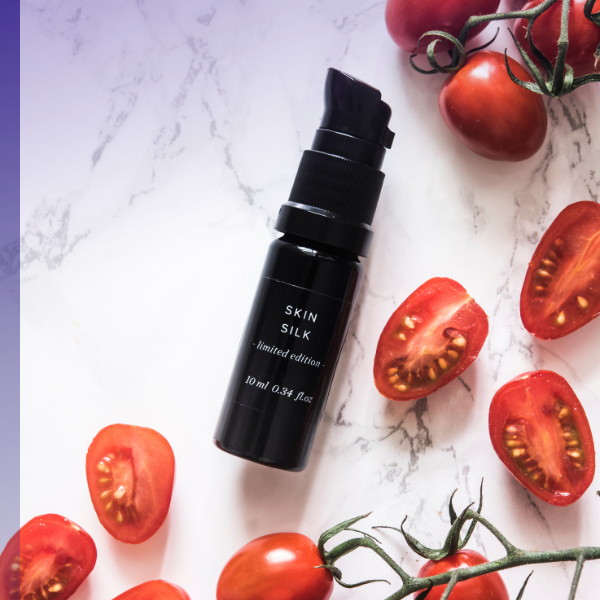
From Family Recipe to Global Phenomenon
Discover the revolutionary world of Niki Newd, where skincare transcends traditional norms. From a cherished family recipe to a global sensation, Niki Newd pioneers 'Fresh Skin Care,' redefining beauty standards with its unwavering commitment to freshness, traceability, and gourmet ingredients.



